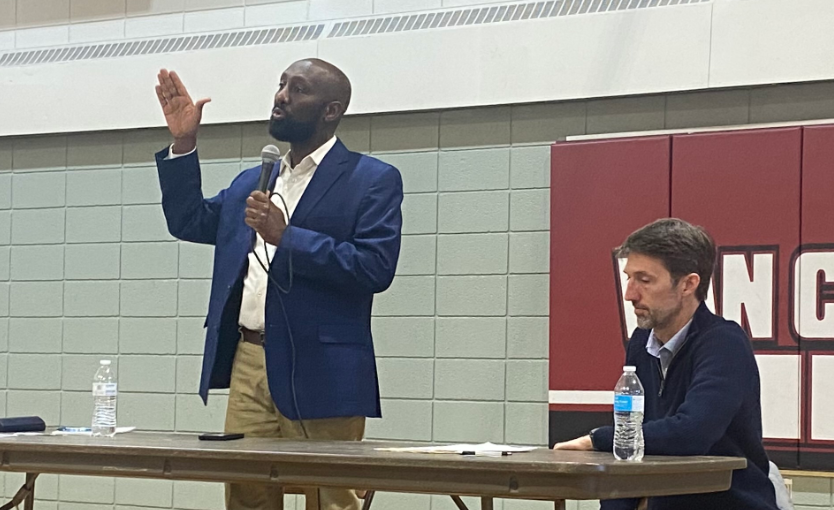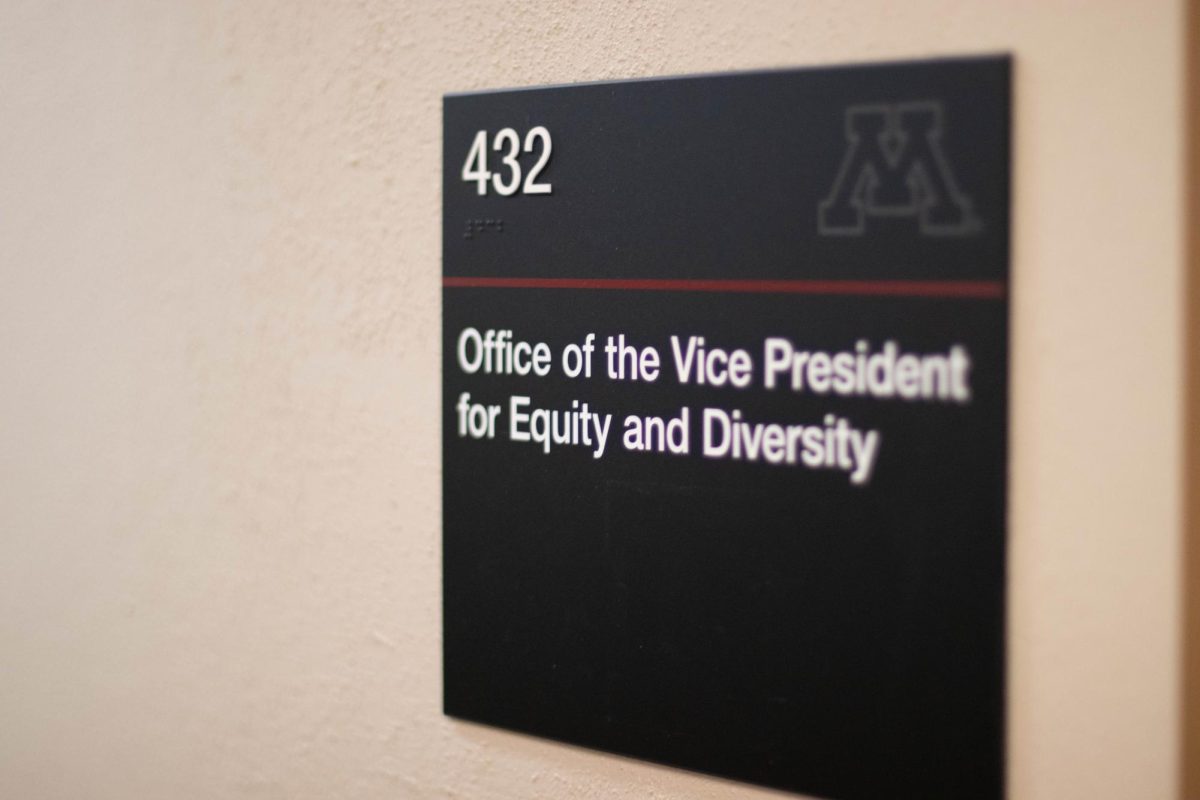The University of Minnesota Faculty Senate passed an academic freedom resolution in December to protect the ability of staff and faculty to teach about concepts such as critical race theory (CRT) and gender in the classroom.
The resolution comes after several state legislatures proposed and, in some cases, passed bills that would ban teaching “divisive concepts” that could cause discomfort among some K-12 students and some students in colleges and universities. University leadership has not yet issued a public response to the resolution.
These “divisive concepts” include teaching that one race or sex is inherently superior to another, the U.S. is fundamentally racist or sexist and an individual is inherently oppressive based on their race or sex.
These bills that limit teaching “divisive concepts,” which can include CRT, largely emerged from former President Donald Trump’s 2020 executive order banning federal trainings designed to confront racism and sexism. President Joe Biden rescinded Trump’s executive order in January 2021, spurring some state legislatures to propose their own bills against teaching these concepts.
The resolution states that the Faculty Senate rejects all attempts by external bodies, such as legislative bodies, to dictate University curriculum. It also calls on President Joan Gabel and Vice Provost Rachel Croson to affirm they reject attempts by external bodies to restrict or dictate curriculum.
“The AF&T committee overwhelmingly supported the resolution,” said Teri Caraway, Academic Freedom and Tenure (AF&T) committee member and political science professor, in an email to the Minnesota Daily. “There was consensus that it was important for us to act given all of the state laws that were targeting CRT.”
The Faculty Senate passed the resolution after other institutions, including DePaul University and Portland State University, passed similar resolutions to protect academic freedom.
“The University has always and will continue to unequivocally support the idea of academic freedom in what our faculty teach and research,” according to a statement emailed to the Minnesota Daily from University public relations.
Previous policies
The University adopted an Academic Freedom and Responsibility policy in 1995, which reaffirms the University’s principles of academic freedom.
The policy defines academic freedom as “the freedom, without institutional discipline or restraint, to discuss all relevant matters in the classroom.” The policy also outlines that all avenues of scholarship, research and creative expression are protected academic freedoms.
The policy states people have the freedom to “speak or write on matters of public concern as well as on matters related to professional duties and the functioning of the University.”
Gopalan Nadathur, chair of the AF&T committee and author of the resolution, said it draws on the Academic Freedom and Responsibility policy and was necessary to pass because people tend to forget policies over time.
“Sometimes you have to remind [people] of basic principles,” Nadathur said. “It might be when something’s happening and when they have been violated, other times you need to remind them when there’s an issue that could become a hot button item in your local environment.”
Academic freedom across the nation
Nadathur said the resolution allows the University to take a stance on the issue of legislative bodies targeting academic freedom. It also shows the University’s solidarity with other academic institutions.
“There are colleagues in other parts of the country that are actually experiencing the travesty of these education gag orders, and we want to express solidarity with them,” Nadathur said.
Minnesota does not currently have any legislation that addresses the content instructors can teach in the classroom, but AF&T members said it is always good to get in front of an issue.
“While we haven’t yet been affected by this … it’s a matter of being up front saying this is something we believe strongly in and would push back on,” said Eric Van Wyk, AF&T member and computer science and engineering professor.
While the University has not been directly impacted by this legislation, another Big Ten school recently confronted this issue. A University of Nebraska Board of Regents member proposed a resolution against teaching critical race theory, which the Board did not pass in August 2021.
A large component of the resolution is to support K-12 schools and institutions that have been affected by these state laws, Wyk said.
Legislation around the teaching of CRT and “divisive concepts” has been proposed or passed in over 20 states, including Iowa, South Dakota, Wisconsin and Indiana.
A political matter
Another part of the resolution states the Faculty Senate endorses the “Joint Statement on Legislative Efforts to Restrict Education about Racism in American History,” which opposes legislative proposals that target academia.
Authored by the American Association of University Professors, the American Historical Association of American Colleges & Universities and PEN America, the statement said “educators, not politicians, should make decisions about teaching and learning.”
The statement was published in June 2021 and 152 organizations have signed it.
While the resolution experienced widespread support, some members of University governance thought it was too politically charged, largely due to the joint statement endorsement.
“The two problems that I had with [the resolution] are committing ourselves to supporting that joint resolution, which I think has factual errors … and then the preamble to the resolution had this very strong political language,” said Michael Kyba, Faculty Consultative Committee member and pediatrics professor.
The joint statement said the clear goal of these legislative efforts is to suppress teaching about the role of racism in U.S. history, “but this seems to be directly contradicted by the plain text of some of the state laws,” Kyba said.
Instead, the laws state their intention as to prevent teaching that would make a student feel discomfort, guilt or distress because of their race or sex.
Kyba said he questioned whether the resolution was addressing academic freedom and freedom of speech, or trying to get people to sign on to a particular political agenda.
“I’m wholeheartedly in favor of protecting academic freedom and freedom of speech in the classroom,” Kyba said. “The thing I’m not signed on to is that you have to assume motives, bad motives, to the other side.”
Kyba said he would have supported the resolution if some of the language had been revised and the University wrote its own, less politically charged, joint statement.
Nadathur, author of the resolution, said he does not think the resolution takes a stand on politics. Instead, he said the resolution illustrates the University’s principle that the freedom to discuss topics openly and respectfully must be preserved in academic institutions.
“It’s really important that we protect the right to have free and open discussions in schools, colleges, universities and more generally in society,” Nadathur said. “There would be no need for [academic institutions] to exist if it wasn’t to progress free thought and free discussion.”
Image by Mary Ellen Ritter
UMN Faculty Senate passes resolution to affirm academic freedom
Amid attempts across the nation to dictate how concepts like race and gender appear in academic curriculum, the University of Minnesota signaled it would protect academic freedom through a new resolution.
by Maia Irvin
Published January 21, 2022
0
More to Discover



















